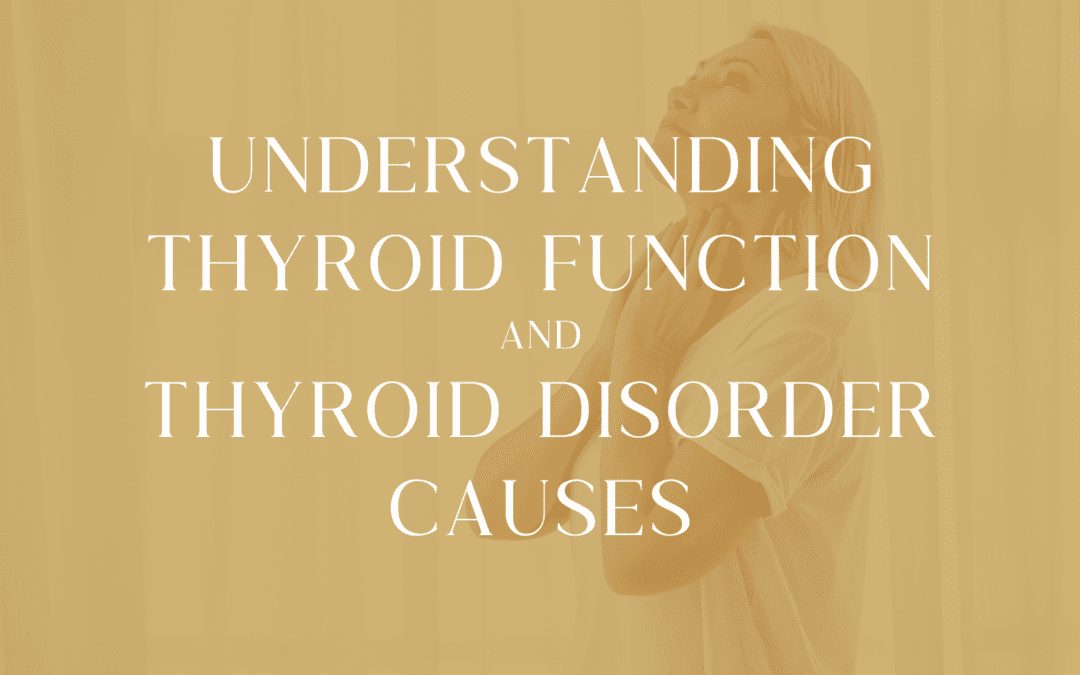The thyroid, a small butterfly-shaped gland nestled in the front of the neck, may be small but it’s mighty in function. It’s responsible for regulating numerous metabolic processes throughout the body through the release of hormones. Understanding thyroid function and the disorders associated with it is crucial, as it affects millions of people worldwide, often impacting their quality of life. Let’s take a look at thyroid function and explore the disorders linked to it.
The Role of the Thyroid Gland
The thyroid gland synthesizes and releases two primary hormones: thyroxine (T4) and triiodothyronine (T3). These hormones regulate the body’s metabolic rate, influencing heart function, digestion, brain development, bone maintenance, and muscle control. It operates under a feedback system involving the hypothalamus and pituitary gland, ensuring that the right amount of thyroid hormones are produced based on the body’s needs.
Understanding Thyroid Hormones
Thyroxine (T4): The primary hormone produced by the thyroid gland. It’s considered a prohormone and a reservoir for T3, as it’s converted into the active T3 in body tissues.
Triiodothyronine (T3): The active form of thyroid hormone, affects almost every physiological process in the body, including growth and development, metabolism, body temperature, and heart rate.
Common Thyroid Disorders
Thyroid disorders are primarily characterized by the production of thyroid hormones, either too much (hyperthyroidism) or too little (hypothyroidism). Other disorders include goiter, thyroid nodules, and thyroid cancer.
- Hypothyroidism: Characterized by an underactive thyroid, leading to a deficiency in thyroid hormones. Symptoms include fatigue, weight gain, cold intolerance, and depression.
- Hyperthyroidism: An overactive thyroid producing excess thyroid hormones. Symptoms include weight loss, anxiety, irritability, and rapid heartbeat.
- Goiter: An enlargement of the thyroid gland that can occur with both hypo- and hyperthyroidism.
- Thyroid Nodules: Lumps in the thyroid gland that can be benign or malignant.
- Thyroid Cancer: Although less common, it’s a serious condition that originates in the thyroid gland.
Causes of Thyroid Disorders
Understanding the causes behind thyroid disorders is key to prevention and management. Here are some of the most common causes:
- Autoimmune Disease: The most common cause of thyroid disorders. In Hashimoto’s disease (leading to hypothyroidism), the immune system attacks the thyroid. Conversely, in Graves’ disease (resulting in hyperthyroidism), the immune system causes the thyroid to produce too much hormone.
- Iodine Imbalance: Both too much and too little iodine can cause thyroid problems. The thyroid uses iodine to make hormones, so imbalances can disrupt this process.
- Radiation and Medications: Radiation therapy to the neck area and certain medications can lead to thyroid dysfunction.
- Thyroid Surgery: Removing all or part of the thyroid gland can affect hormone production.
- Pregnancy: Some women develop thyroid problems during or after pregnancy due to hormonal changes and immune system suppression.
The impact of thyroid disorders extends beyond simple discomfort; they can profoundly affect an individual’s physical and mental health. Untreated thyroid disease can lead to cardiovascular diseases, osteoporosis, infertility, and severe metabolic complications.
Understanding your thyroid’s function and the disorders that can afflict it is more than academic knowledge; it’s a crucial aspect of maintaining overall health. Recognizing the signs and symptoms of thyroid dysfunction, understanding the potential causes, and seeking appropriate medical care are vital steps in managing these common yet complex conditions. With proper treatment and management, individuals with thyroid disorders can lead healthy, active lives. The key is awareness, education, and proactive healthcare.

